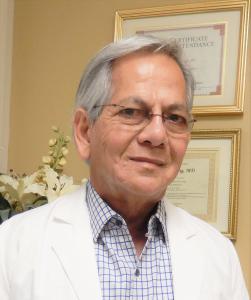Pertussis (Whooping Cough), explained by Pediatrician Dr. Kenneth P. Rebong
Does your child have a bad cough that has got a ringing or “whooping” sound to it? That may be the whooping cough. Dr. Kenneth Rebong explains in a new article.
Kenneth Pomar Rebong, MD (N/A:N/A)
Dr. Kenneth Rebong has published an overview article on this condition. The complete article will be published on the Blog of Dr. Rebong at https://drkennethrebong.wordpress.com/
Whooping cough is caused by a specific bacterium, the Bordetella pertussis, which is an airborne infection. This means that the infection-causing bacteria spread in the form of droplets in the air. The medium of contagion makes the disease highly infectious, especially among infants and children. This is primarily because the disease is easily transmitted through coughs and sneezes of someone who has already been infected. Although almost anyone can contract this respiratory infection of the lungs and the breathing tubes, infants are the most susceptible targets of this disease making them the most likely ones to be infected first.
Symptoms
Symptoms of the whooping cough heavily depend on the number of days it has been since it was first contracted. Once the child is infected with pertussis, symptoms of the infection start appearing in a span of about seven to ten days. Initially, these signs are mild and gradually build on to become persistent and chronic. These initial symptoms include most of the symptoms of the common cold i.e. a runny nose, nasal congestion (stuffy nose), cough, mild fever, and constant tearing up of the eyes.
Symptoms displayed on the later stages of the infection are more problematic. These symptoms include vomiting, production of excessive sputum, face going red or blue, lethargy and fatigue, and a cough with a “whooping sound”. As the condition gets worse, mucus accumulation also starts building up. Infants and children struggle to sleep in the later stages of the infection and always appear to be irritated due to chest and nasal congestion.
Diagnosis
Diagnosis of the whooping cough can either be carried out immediately, by means of a physical examination of the patient or by lab testing. Since the symptoms are often enough to diagnose the problem in most cases, a physical examination proves to be sufficient. At other times, specialized lab tests such as the Polymerase chain reaction (PCR) are required.
Treatment
If pertussis is not treated in a timely manner, especially in infants and children, it can lead to risky complications such as pneumonia, and irregular, slow, or stopped breathing, Dehydration and weight loss difficulties, seizures, and brain damage are also some of the complications of the disease. Treatments for whooping cough range from cough syrups to antibiotics depending on how long the infection has been present. Pertussis can also be prevented by means of vaccines and regular immunization jabs.
Whooping cough can have lasting, drastic effects, which is why treating it on time is very crucial. In case your child shows any of the symptoms of Pertussis, consult your doctor immediately.
About Dr. Kenneth Pomar Rebong
Dr. Kenneth P. Rebong, a medical doctor in San Jose, California, specializes in Pediatrics and Adolescent Medicine. The scope of his practice is from age 0 to 21. He graduated from FEUNRMF University in Manila, Philippines and completed his residency at Rutgers University in New Brunswick, New Jersey, USA.
Blog: https://drkennethrebong.wordpress.com/
News: https://hype.news/dr-kenneth-pomar-rebong/
https://medicogazette.com/dr-kenneth-pomar-rebong
https://hippocratesguild.com/dr-kenneth-pomar-rebong
https://www.linkedin.com/in/kenneth-pomar-rebong-md-4484a938/
Kenneth Pomar Rebong, MD
Kenneth Pomar Rebong, MD
+ + + + + +1 408-729-3232
email us here
Visit us on social media:
LinkedIn
What is Whooping Cough (Pertussis) & Whopping Cough Symptoms - Cleveland Clinic
Legal Disclaimer:
EIN Presswire provides this news content "as is" without warranty of any kind. We do not accept any responsibility or liability for the accuracy, content, images, videos, licenses, completeness, legality, or reliability of the information contained in this article. If you have any complaints or copyright issues related to this article, kindly contact the author above.





